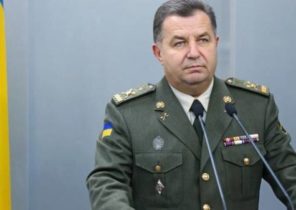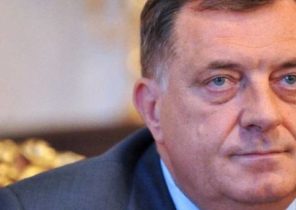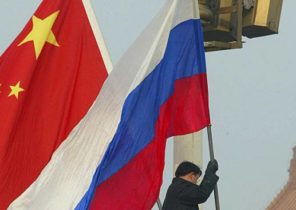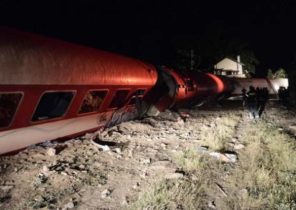
State of the Russian media such as Russia Today and Sputnik, trying to create an image of the invincibility of Russia, saying its military intervention in Syria, which began in September of 2015, but it is not. Syria is one of the most dangerous areas of military actions and the Russian forces have structural flaws, manifested sometimes quite suddenly and catastrophically, as in the case of the Tu-154 crashing into the Black sea two minutes after takeoff on the morning of 25 December with 92 passengers on Board — all perished.
On Board the plane EN route to the Syrian Russian aviation base near Latakia, flying choir of the Russian army, representing musical tradition, we meet with love and respect around the world. And this only reinforces the tragedy of this accident.
Russian media highlight only two possible versions, technical failure or external influence, both raise questions of the experts. If the accident occurred due to a technical malfunction, it could be due to the fact that took off from Moscow (and made a stop in Sochi) Tu-154 operated since 1983 and was deprecated (airlines usually determine the life of the aircraft within ten to twenty years, and not more than 30). If there were sabotage, the situation is even worse, since we are talking about a possible failure in the work of the security services in the military sector, that almost unthinkable.
In the past year Egyptian tourism took off from the airport of Sharm El-Sheikh Charter flight with Russian passengers were killed in Sinai a bomb planted by a member of ISIS (banned terrorist organization). The fact that Russia wants less to participate in the civil war in Syria than it seems, because she fears the risks inherent in it, confirmed it through diplomatic means to reach agreement with the rebel groups, and this line not shared by the allies, Iran and the Syrian government.
These days in the Turkish capital of Ankara are very careful negotiations to convince enterprises of the armed opposition to conclude a General agreement on a ceasefire that does not include group jabhat al Fateh al-sham, the Syrian branch of al-Qaeda (a terrorist organization banned in Russia). These negotiations do not reflect the views of Syrian President Bashar al-Assad, who promised to recapture “every inch of the country”, but it is clear that a truce (and not the continuation of the war in areas that remain at the mercy of armed associations, such as Idlib) will benefit Russia, which at the moment cannot cover all fronts.
She recently lost the city-the symbol of Palmyra, where in may he staged a performance of a symphonic orchestra, to celebrate the victory of civilization over barbarism of the Islamic state. Palmyra was again in power the terrorist organization for the simple reason, because of the surge: Russia can not compensate for the lack of Syrian military forces at all points. Reduced the garrison left to protect the city, barely escaped the captivity, and the commander of Russian paratroopers Sanal Sanchirov died during the battle.
The fact that the Russian side conducts negotiations with the rebel unions, also confirmed the finale of the battle for Aleppo: the agreement was amended after it was signed, because the Iranian side expressed dissatisfaction, and added its own requirements. So the war in Syria exposes the weakness of Russia, even though it sounds a bit strange. Since ballistic missiles “Caliber” running from the Black sea and caught up by mistake in Iran (four of 26, according to the Pentagon, that Russia indignantly denies), to the awkward mission of the aircraft carrier “Kuznetsov”, which was supposed to be a platform to launch six bombers from the Syrian coast, and two of them fell into the sea, and until recently a videos strategic missiles S-300, is burned on the spot, instead of off, the Russian side is much more technical and political problems than she acknowledges.







